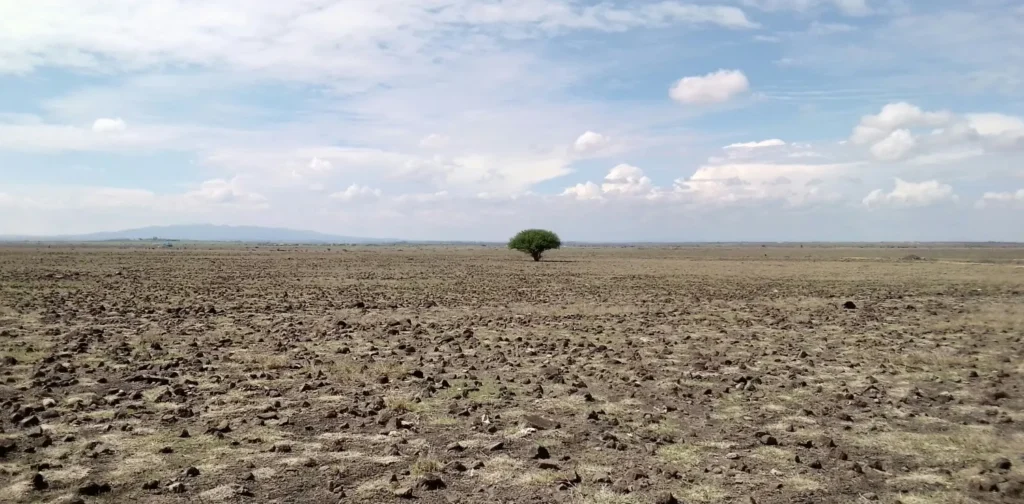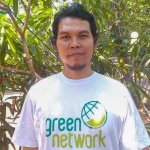Ecocipation: The Concept of Ecological Emancipation for People and the Planet

Photo: Lazarus Marson on Unsplash.
Environmental degradation has been closely tied to human activities. Anthropocentric interests have pushed the Earth into the triple planetary crisis—pollution, biodiversity loss, and climate change—and we are all feeling the impacts. Amidst the efforts to save the planet and humanity, a concept beyond human emancipation has emerged: ecocipation. What is ecological emancipation and how can this concept support sustainable development?
What Is Ecocipation?
Ecocipation is a concept of ecological emancipation. It recognizes nature—forests, mountains, oceans, and all biodiversity and ecosystems—not as an exploitation object but as a subject equal to humans, including as a legal and political subject. This concept was first brought up by an Indonesian sociologist Robertus Robet in his inauguration speech as Chair of Social Philosophy at Universitas Negeri Jakarta on June 12, 2025.
The concept is based on the French philosopher Bruno Latour, who contested the subject versus object dichotomy between humanity and nature which became the basis of anthropocentrism. Latour then proposed a new paradigm that places humans and non-humans in equal positions that affect each other. Besides Latour, ecocipation also stems from Jason W. Moore’s idea that capitalism is an economic system that organizes nature for the accumulation of capital.
We are facing climate change and unprecedented levels of environmental degradation due to irresponsible practices and natural exploitation. In this light, Robet emphasizes emancipation must include nature and be done together with nature, and that is the purpose of ecocipation. Therefore, nature is a part of our community, just like humans, with its own rights. These rights include the right to not be exploited.
Rights of Nature and Ecocipation
The concept of ecocipation is similar with the Rights of Nature, in which the legal framework recognizes nature as having its own intrinsic rights to exist, thrive, and continue its ecological cycles. Ecuador was the first country to acknowledge the Rights of Nature in 2008. Aruba followed suit in 2024 through a constitutional amendment. Other countries and territories are also in varying states of progress to recognize the Rights of Nature, often with the involvement of Indigenous peoples.
However, bringing ecocipation to reality is not easy. In his speech, Robet acknowledged that it would be impossible to bring trees, animals, mountains, and others into the meeting room for a decision-making process. So, nature needs representatives. Policymakers must listen to nature’s representatives, which are people who have always understood it the most: Indigenous peoples, local communities, scientists, and activists.
To make ecocipation possible, Robet highlighted the importance of degrowth—consuming less and halting unnecessary and harmful production while advancing human and ecological prosperity. In short, degrowth aims to ensure justice and fairness between nature and humanity. At the national level, degrowth can start from several efforts, such as:
- Halting harmful development, such as mining expansions and megaprojects that abandon Indigenous peoples and ecological health.
- Shifting resources from development that centers the elite toward fulfilling the basic needs of all citizens.
- Pushing for development that focuses on redistribution and social justice through public service expansion and decommodification.
- Advancing community-based economy and regenerative economy.
Translator: Nazalea Kusuma
The original version of this article is published in Indonesian at Green Network Asia – Indonesia.

Co-create positive impact for people and the planet.
Amidst today’s increasingly complex global challenges, equipping yourself, team, and communities with interdisciplinary and cross-sectoral insights on sustainability-related issues and sustainable development is no longer optional — it is a strategic necessity to stay ahead and stay relevant.

Abul Muamar
Amar is the Manager of Indonesian Digital Publications at Green Network Asia. He holds a Master’s degree in Philosophy from Universitas Gadjah Mada and a Bachelor’s degree in Communication Studies from Universitas Sumatera Utara. He has over ten years of professional experience in journalism as a reporter and editor for several national-level media companies in Indonesia. He is also a writer, editor, and translator with a particular interest in socio-economic and environmental issues.


 Impacts of E-waste Pollution on Animals and Human Health
Impacts of E-waste Pollution on Animals and Human Health  Africa’s Solar Energy Surge: Why 2025 Was a Breakthrough Year
Africa’s Solar Energy Surge: Why 2025 Was a Breakthrough Year  Agrihoods: Integrating Farms and Urban Neighborhoods into Sustainable Communities
Agrihoods: Integrating Farms and Urban Neighborhoods into Sustainable Communities  Women in Waste Management: Asia’s Circularity Runs on Women. Its Policies Still Don’t
Women in Waste Management: Asia’s Circularity Runs on Women. Its Policies Still Don’t  Embracing the Business Value of Sustainability
Embracing the Business Value of Sustainability  American Farmers Call for Government Support Amidst PFAS Contamination
American Farmers Call for Government Support Amidst PFAS Contamination